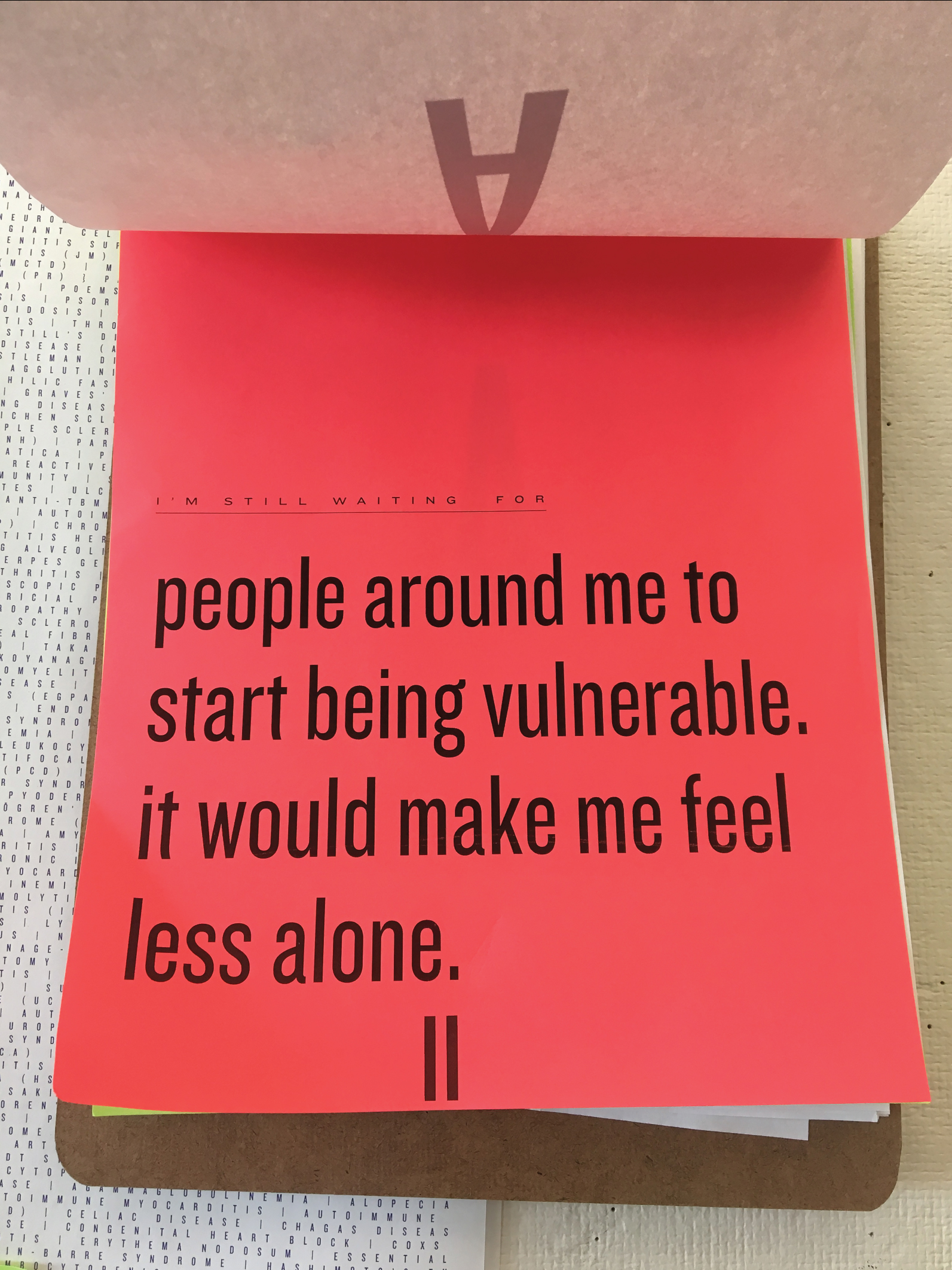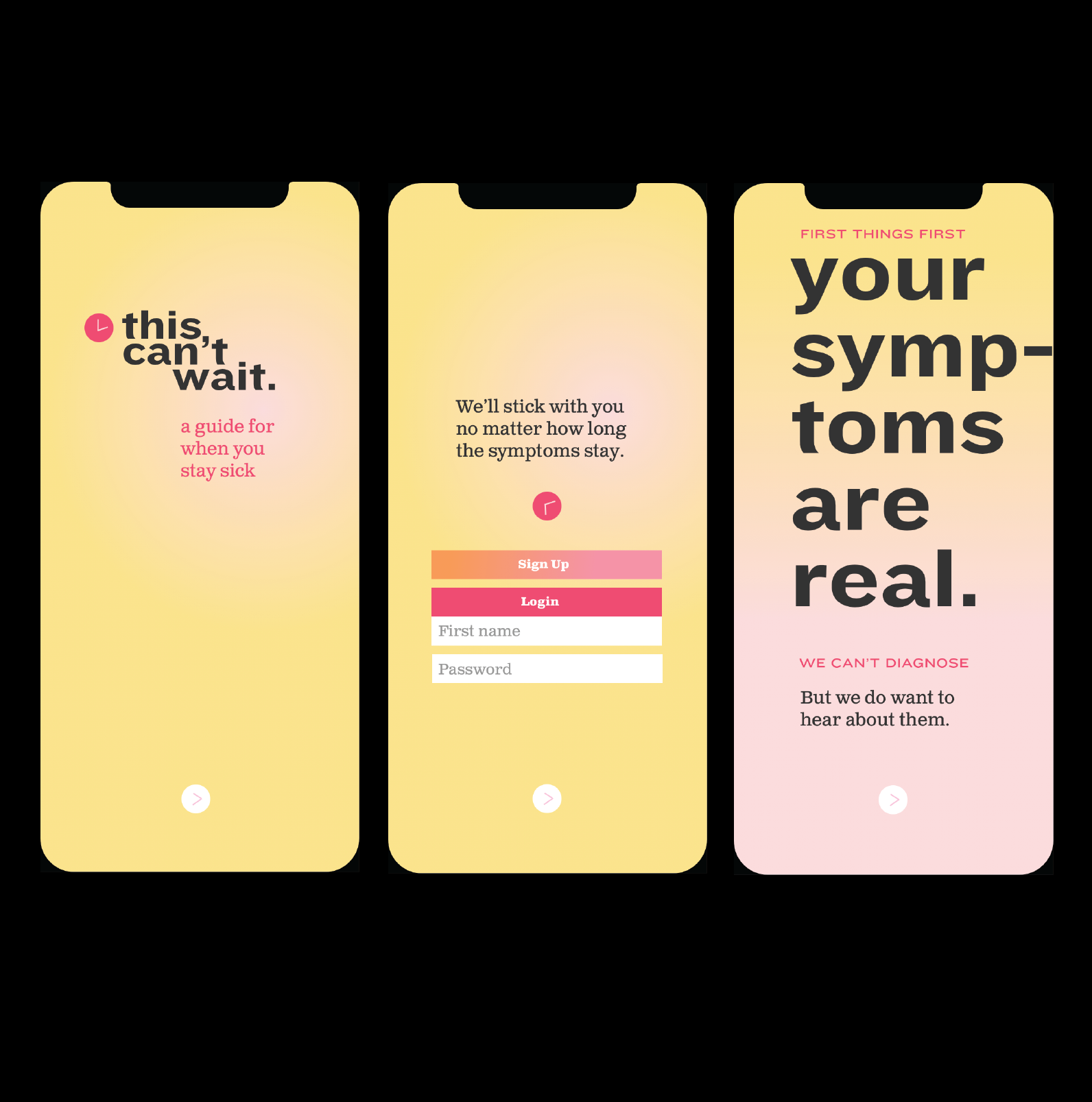Abstract
People experiencing chronic illness usually do not get speedy and clear solutions to the problems they come with to the doctor’s office. They don’t fit neatly within the usual data points and require different care for a longer period of time than doctors are willing or able to give. According to Forbes, doctors listen to their patients for 11 seconds on average before interrupting. Women have always faced sexism interpersonally while conveying complex symptoms to doctors, but the diseases most affecting women are also systematically undervalued and understudied.
“The Waiting Room” uses gathered communal data about time and memory in regard to health, centering the experience of young people who identify as female and as chronically ill. It validates the time they spend living with these illnesses and makes the emotional toll of those experiences visible. In the spirit of the historically feminized role of caretaking and nurturing, both its research methods and project outcomes favor the relational over the clinical. They question our conceptions of objectivity by using data visualization as a means to show both the personal and the ambiguous. As a complement to doctors’ visits, the “This Can’t Wait” app offers a digital caregiving tool that checks in with patients over time in order to foster their capacity for vulnerability and communication.






